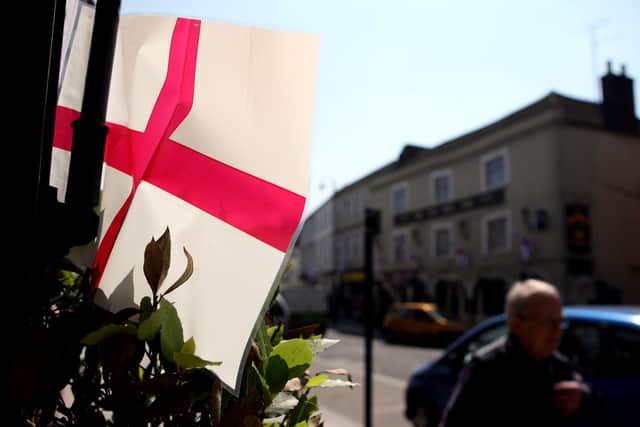St George's Day: How widespread English identity is in Doncaster
and live on Freeview channel 276
St George's Day – a celebration of England’s patron saint and the country’s history – is on Tuesday, April 23.
But the latest population survey from the Office for National Statistics, which covers all of last year, shows just 43 per cent of people in England said they identified as English.
Advertisement
Hide AdAdvertisement
Hide AdRespondents can select as many options as they like from British, English, Scottish, Welsh, Irish or ‘other’.


In Doncaster, 67 per cent of people said they identified as English last year – up from 48 per cent in the year to June 2016, before the Brexit referendum.
A decade earlier, 70 per cent of people identified as English, while it was 63 per cent in 2004.
Nationally, the number of people identifying as English has broadly fallen over the last decade.
Advertisement
Hide AdAdvertisement
Hide AdSome 52 per cent said they were English in the year to June 2016, while this rose to 54 per cent in 2013. It was as high as 59 per cent in 2004.
Sunder Katwala, director of the British Future think tank, which works to promote diversity and social inclusion, said: "People’s sense of Englishness ebbs and flows. You'll see a lot of England flags in June when the Three Lions are competing in the Euros, and then they'll disappear again.
"We could do a lot more to celebrate English identity outside of major sporting moments, in an inclusive way – flying the flag with pride and making sure everyone feels invited to the party on St George’s Day.
"Getting behind a shared English identity could help bring people together."
Advertisement
Hide AdAdvertisement
Hide AdHowever, the Centre for English Identity and Politics at the University of Southampton, said the findings should be approached with caution.
Its director, Professor John Denham, said many people only select one response, despite having "multiple identities".
He added the British social attitudes survey suggests there has been an increase in the numbers saying they are equally English and British, but a smaller rise in the numbers saying they are British rather than English.
In Doncaster, 37 per cent of respondents said they identified as British – below the national average of 57 per cent.
Comment Guidelines
National World encourages reader discussion on our stories. User feedback, insights and back-and-forth exchanges add a rich layer of context to reporting. Please review our Community Guidelines before commenting.